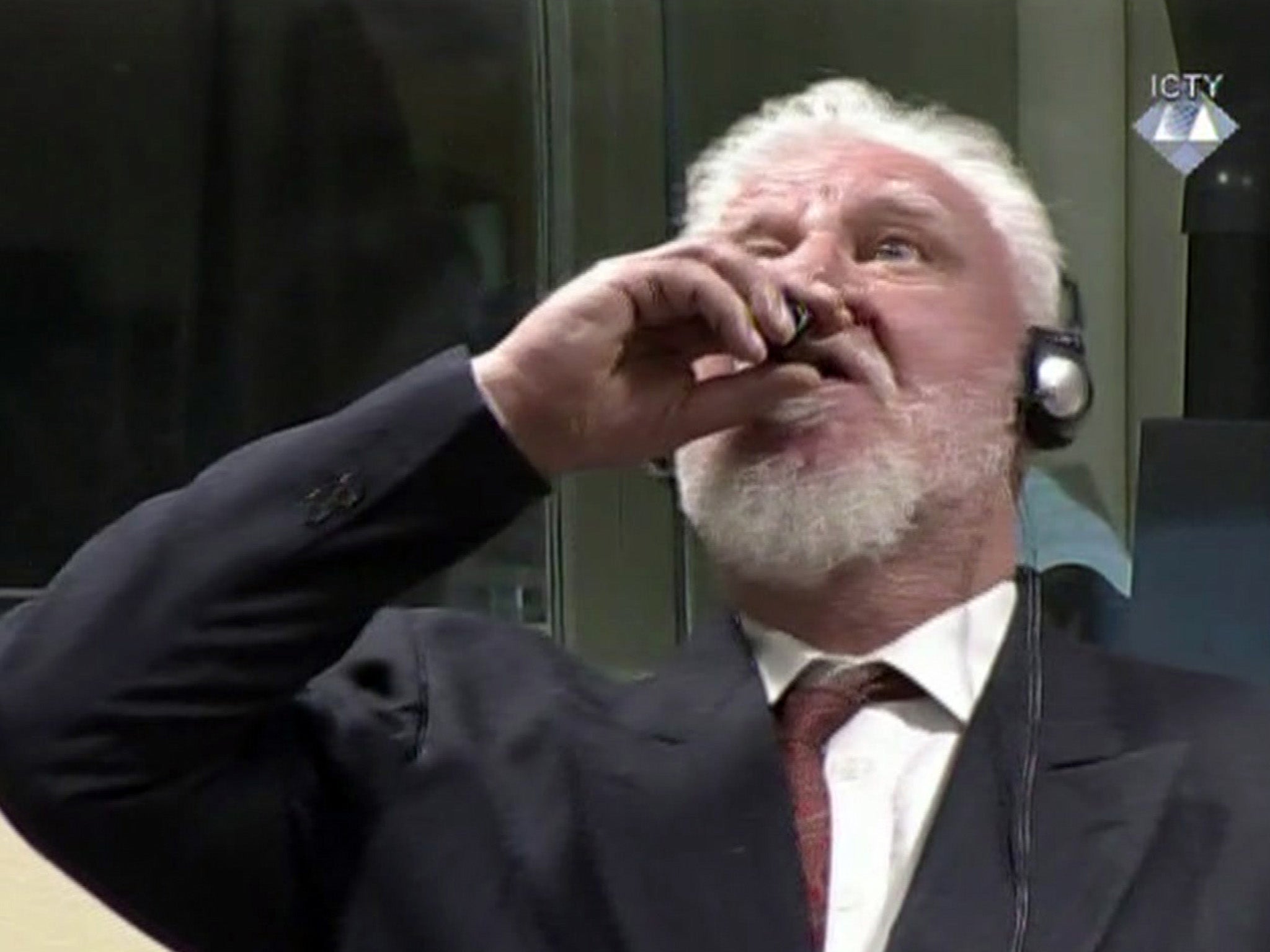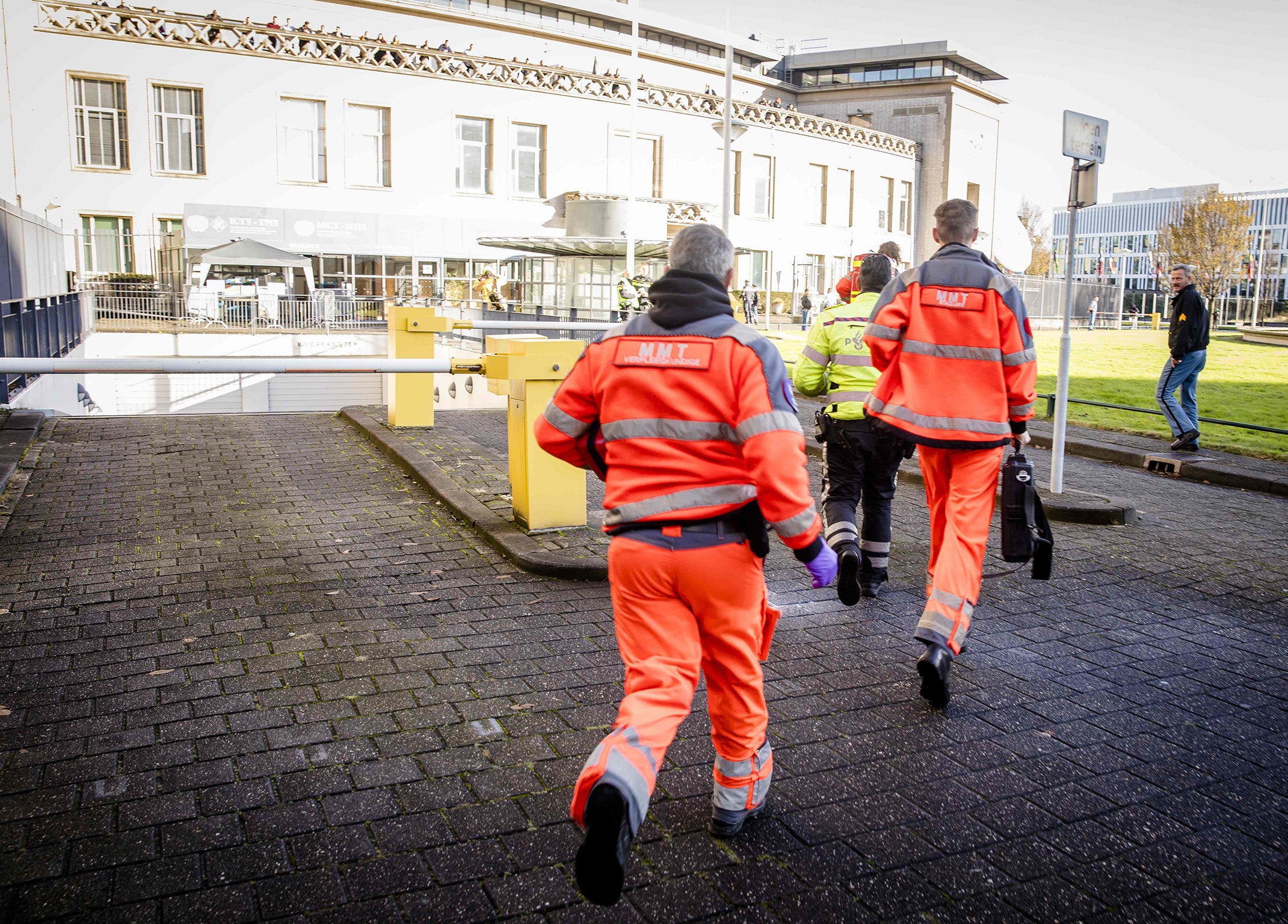Bosnian Croat war crimes suspect 'drinks poison' during trial at The Hague
Slobodan Prljak one of six former political and military leaders to have sentences upheld

Your support helps us to tell the story
From reproductive rights to climate change to Big Tech, The Independent is on the ground when the story is developing. Whether it's investigating the financials of Elon Musk's pro-Trump PAC or producing our latest documentary, 'The A Word', which shines a light on the American women fighting for reproductive rights, we know how important it is to parse out the facts from the messaging.
At such a critical moment in US history, we need reporters on the ground. Your donation allows us to keep sending journalists to speak to both sides of the story.
The Independent is trusted by Americans across the entire political spectrum. And unlike many other quality news outlets, we choose not to lock Americans out of our reporting and analysis with paywalls. We believe quality journalism should be available to everyone, paid for by those who can afford it.
Your support makes all the difference.A UN court has suspended an appeals hearing after a Bosnian Croat wartime commander claimed to have drunk poison.
A court spokesperson said Slobodan Praljak was still alive and is being treated.
Praljak is one of six former Bosnian Croat political and military leaders who were appealing their sentences in The Hague.
The 72-year-old tilted back his head and took a swing from a flask or glass as the judge read out that his 20-year prison sentence had been upheld.

"Judges, I am not a war criminal, I reject the verdict with contempt," he said after drinking. The presiding judge called for a doctor and halted the proceedings.
Praljak was originally sentenced in 2013 for his involvement in a campaign to drive Muslims out of a would-be Bosnian Croat mini-state in Bosnia in the early 1990s.
Presiding Judge Carmel Agius had overturned some of Praljak's convictions but left his sentence unchanged.
It could not immediately be confirmed whether Praljak had taken poison or the status of his health.
Wednesday's hearing was the final case at the groundbreaking tribunal before it closes its doors next month.
The tribunal, which last week convicted former Bosnian Serb military chief General Ratko Mladic of genocide and other crimes, was set up in 1993, while fighting still raged in the former Yugoslavia.
It indicted 161 suspects and convicted 90 of them.
The appeals judges upheld a key finding that late Croat president Franjo Tudjman was a member of a plan to create a Croat mini-state in Bosnia.
Two other suspects had also had their sentences upheld before the hearing was halted.
Join our commenting forum
Join thought-provoking conversations, follow other Independent readers and see their replies
Comments